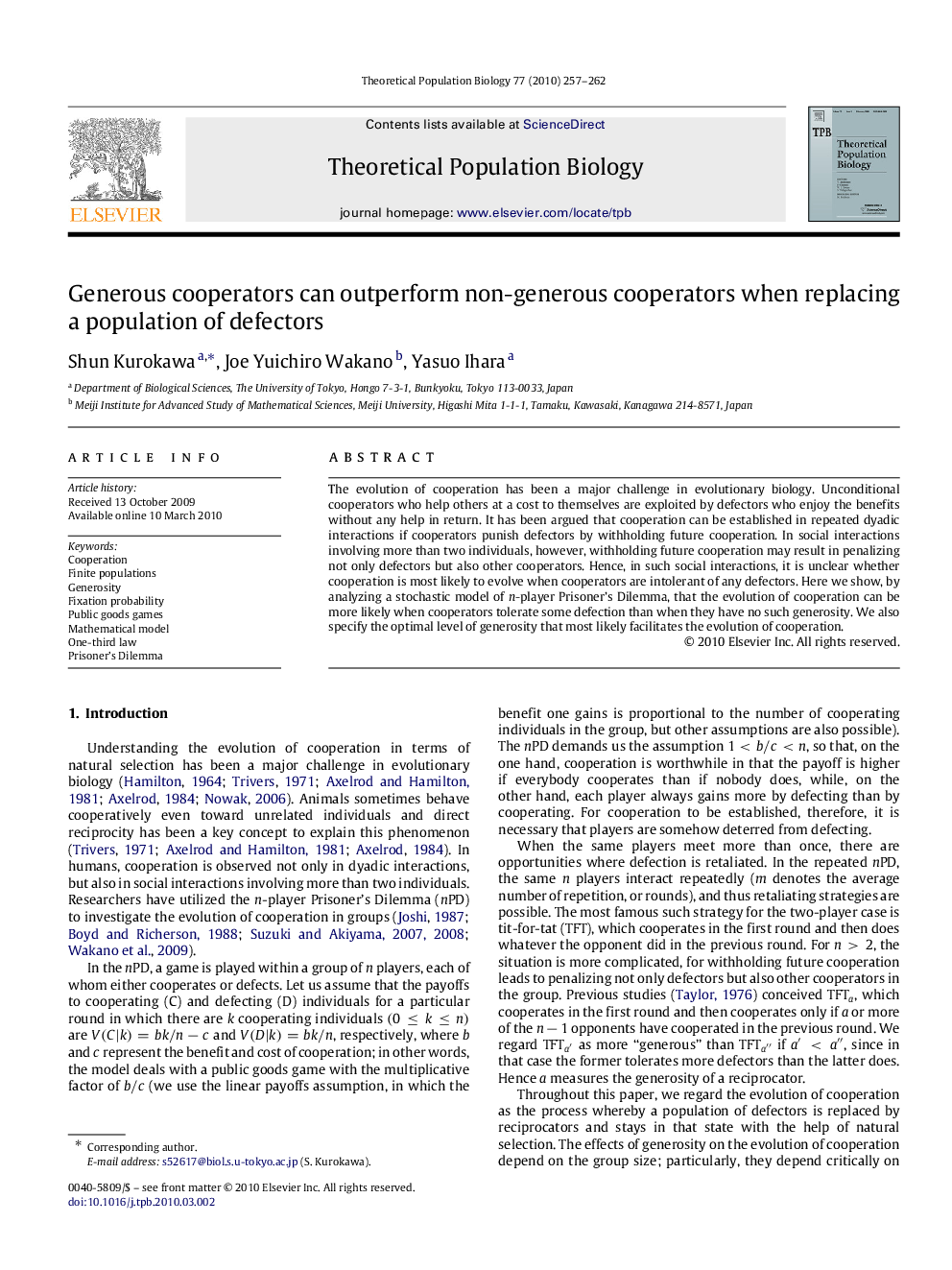| Article ID | Journal | Published Year | Pages | File Type |
|---|---|---|---|---|
| 4502847 | Theoretical Population Biology | 2010 | 6 Pages |
The evolution of cooperation has been a major challenge in evolutionary biology. Unconditional cooperators who help others at a cost to themselves are exploited by defectors who enjoy the benefits without any help in return. It has been argued that cooperation can be established in repeated dyadic interactions if cooperators punish defectors by withholding future cooperation. In social interactions involving more than two individuals, however, withholding future cooperation may result in penalizing not only defectors but also other cooperators. Hence, in such social interactions, it is unclear whether cooperation is most likely to evolve when cooperators are intolerant of any defectors. Here we show, by analyzing a stochastic model of nn-player Prisoner’s Dilemma, that the evolution of cooperation can be more likely when cooperators tolerate some defection than when they have no such generosity. We also specify the optimal level of generosity that most likely facilitates the evolution of cooperation.
